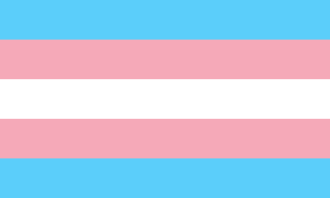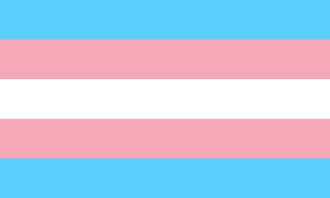SUPREME COURT: Restrictions on Sex Transition Treatments for Minors are A-Okay
The U.S. Supreme Court Issued a Decision in United States v. Skermetti Today
This morning, the U.S. Supreme Court announced its decision in United States v. Skermetti, often called the “transgender case.” In its opinion, the high court held that state laws restricting provision of puberty blockers to minors experiencing gender dysphoria do not violate the U.S. Constitution.
It’s a big decision with a complicated legal analysis, but it is absolutely the right decision, for so many reasons. These types of cases cast very long shadows.
—
FYI, I haven’t read the majority opinion or concurring/dissenting opinions yet, so this is a quick down and dirty high-level summary of the Tennessee law the United States government challenged as unconstitutional. The case was initiated and argued by Biden’s Department of Justice in 2023 and 2024 respectively, before Trump’s inauguration. After I’ve read and processed the opinions, I’ll have more to say.
Breaking News!
As the news broke this morning, I scrolled through my feed and immediately came across two headlines:
BREAKING: Supreme Court Protects Children By Upholding Tennessee Law, and
BREAKING: The Supreme Court's major blow to gender-affirming care
The first was from Do No Harm Medicine, and the second from the American Civil Liberties Union. I think these headlines illustrate the positions of each side without further explanation, at least for now.
Summary of the Court’s Decision
The Court’s Words
“In 2023, Tennessee joined the growing number of States restricting sex transition treatments for minors by enacting the Prohibition on Medical Procedures Performed on Minors Related to Sexual Identity, Senate Bill 1 (SB1).
SB1 prohibits healthcare providers from prescribing, administering, or dispensing puberty blockers or hormones to any minor for the purpose of:
(1) enabling the minor to identify with, or live as, a purported identity inconsistent with the minor’s biological sex, or
(2) treating purported discomfort or distress from a discordance between the minor’s biological sex and asserted identity.
At the same time, SB1 permits a healthcare provider to administer puberty blockers or hormones to treat a minor’s congenital defect, precocious puberty, disease, or physical injury.
Three transgender minors, their parents, and a doctor challenged SB1 under the Equal Protection Clause of the Fourteenth Amendment.”
My Words
The challengers claimed that Tennessee’s law discriminated against transgender youth on the basis of sex. For example, since minor males can receive testosterone as a form of medical treatment, denying minor females access to testosterone as a form of medical treatment constitutes illegal sex discrimination. The same goes for estrogen, just the other way around.
Think of it this way, the argument is that if boys can get testosterone, but girls can’t, then girls are being discrimated against on the basis of their sex. Naturally, then, denying girls, especially who want to be boys, access to testosterone treatments is an unfair and unequal application of the law.
Today, the Supreme Court rejected the challengers’ discrimination arguments, which means that Tennessee’s law may remain in full force and effect since it doesn’t violate the equal protection clause of the 14th Amendment. The decision is applicable to all 50 states.
—
No doubt it’s all a bloody mess, legally and culturally. There’s significant background about what had to happen before this type of case could even be considered. I’ll bring it to you over the coming weeks as I contine my way through pride month and gay marriage becoming law.
—
Thanks, in advance, for your mercy if I’ve not been clear enough above or created more confusion than clarity. Please feel free to ask me any questions in the comments or by email.
New post on Pride Month coming tomorrow! Stay tuned.
xo,
Kelley
June 18, 2025





Great legal analysis - as usual !!